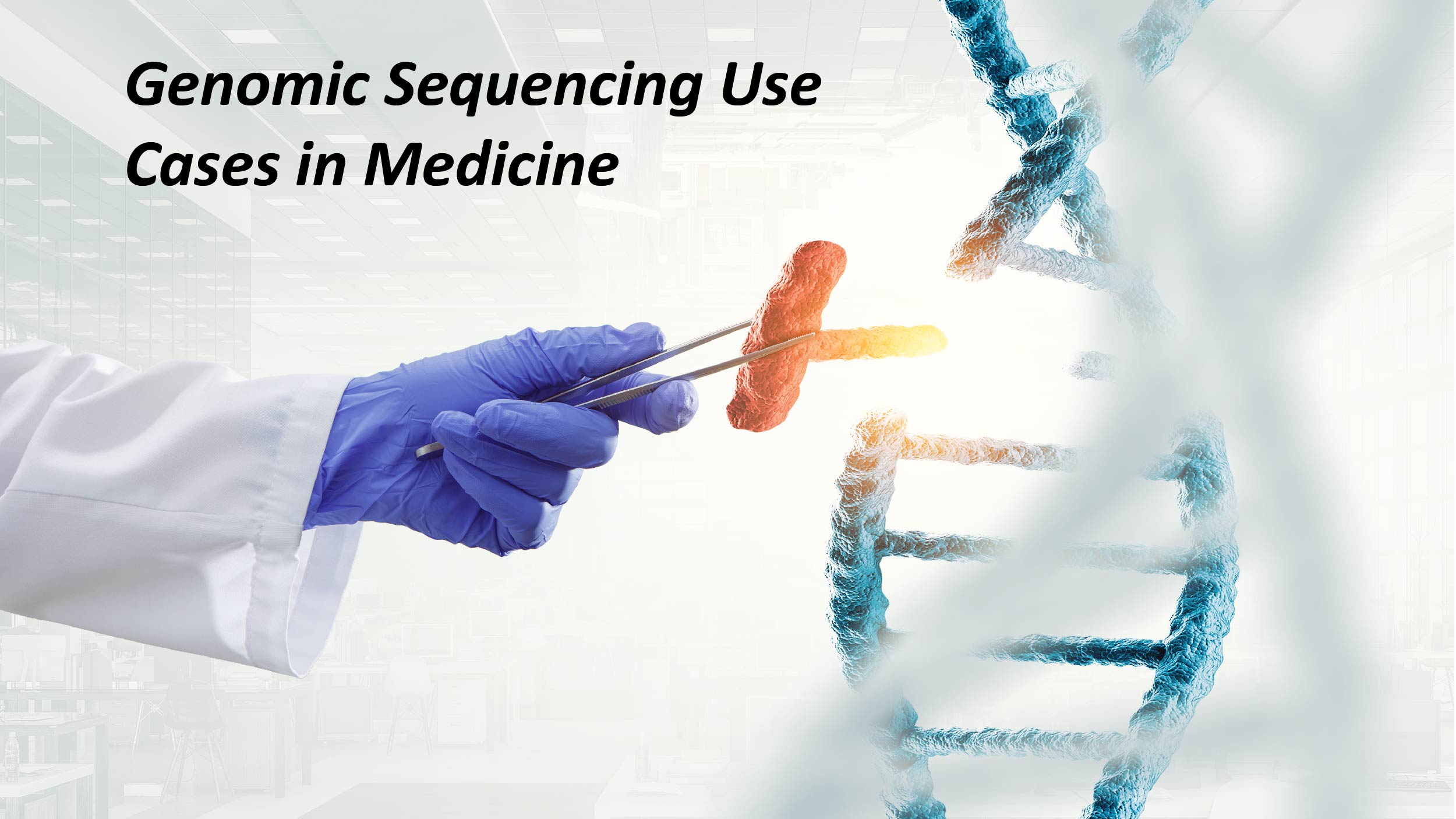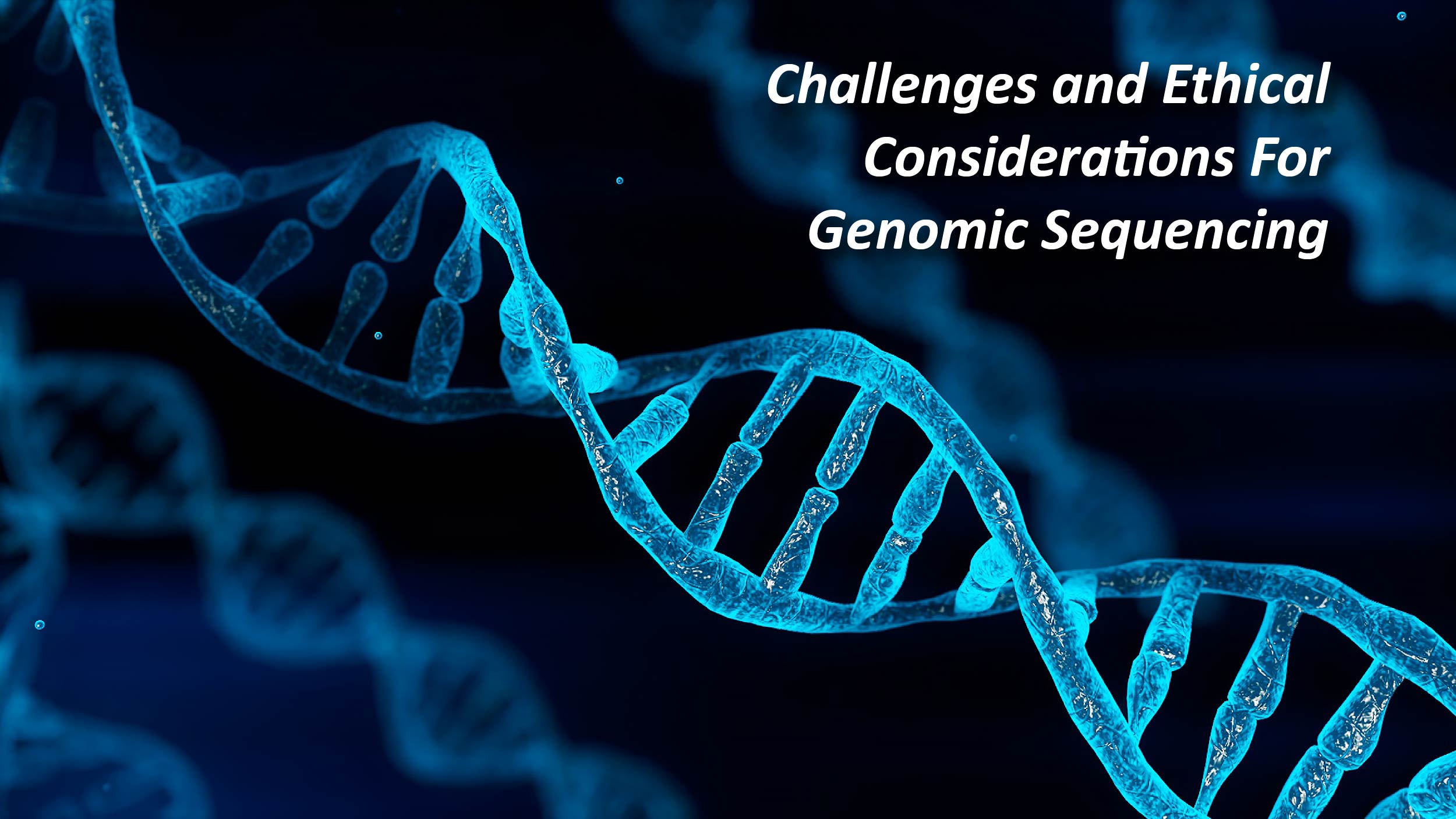Ever wondered what makes you, well, you? The answer lies within the complex and fascinating world of genomic sequencing. But hold on—what exactly is this technique all about, and why is it such a big deal?
Genomic sequencing, a cutting-edge technique, is unraveling the intricate code that governs our existence. Let’s get into the depths of this amazing technology, unveiling its significance, applications, and the unprecedented insights it offers into the blueprint of life.
What is Genomic Sequencing?
Genomic sequencing is a process that involves identifying the sequence of nucleotides (A, T, C, and G) that constitute an organism’s DNA. It offers a detailed overview of an individual’s genetic makeup, giving insights into the specific arrangement of genes that influence characteristics, vulnerabilities, and even tendencies towards particular illnesses.
Genomic Sequencing Use Cases in Medicine

This technique plays a crucial role in modern medicine, completely transforming the approach to healthcare. Let’s explore some of its significant applications:
- Disease Diagnosis: Genetic diseases, especially rare and inherited ones, can be effectively identified with the aid of this process. This advanced approach enables the diagnosis of conditions that may not be easily detectable using traditional diagnostic methods.
- Cancer Genomics: Genomic sequencing of tumor DNA enables a tailored strategy for cancer treatment. By pinpointing individual genetic mutations, it aids in the selection of precise therapies that offer increased efficacy while minimizing adverse reactions.
- Pharmacogenomics: Genetic information plays a crucial role in understanding how an individual’s response to medications is affected. This knowledge is utilized to personalize drug prescriptions, ensuring optimal effectiveness while minimizing any potential adverse effects.
- Prenatal Screening: Genetic abnormalities can be detected at an early stage of pregnancy through genomic sequencing of fetal DNA extracted from maternal blood. This enables expectant parents to make informed decisions and consider potential interventions.
- Infectious Disease Genomics: It is a valuable technique for identifying and tracking the origins and spread of infectious diseases. It plays a crucial role in effectively managing and containing outbreak situations.
- Genetic Counseling: It provides valuable information for genetic counselors to assess an individual’s risk of developing certain diseases and guide them in making informed decisions about their health.
- Population Health and Epidemiology: The analysis of genomic data plays a significant role in the field of population genetics, aiding researchers in comprehending the frequency and dispersal of genetic variations within various populations. Such knowledge is imperative for effectively strategizing public health initiatives and interventions.
Also Read : Getting Started with IoT in Agriculture: A Beginner’s Guide
Advancements in Research
Genomic sequencing has emerged as an essential tool in scientific investigations, propelling advancements in a multitude of fields. Scientists employ this technique to examine the underlying genetic causes of illnesses, trace the evolutionary paths of species, and explore the intricacies of human migration dynamics.
In recent years, there have been significant breakthroughs in DNA sequencing methods, resulting in a substantial decrease in the time and expenses involved in sequencing a complete human genome. This advancement has made it possible for the widespread sequencing of individual genomes to be incorporated into regular healthcare practices, as suggested by Genomics England in the United Kingdom. Furthermore, the cost of sequencing a single genome has now been reduced to less than $1,000.
Challenges and Ethical Considerations For Genomic Sequencing

Genomic sequencing, while offering unprecedented insights into the genetic makeup of individuals, poses several challenges and ethical considerations that need careful attention. Here are some key challenges and ethical considerations:
● Privacy Concerns:
Challenge: Genomic data contains highly sensitive and personal information. Maintaining the privacy of individuals and protecting their genetic information from unauthorized access or misuse is a significant challenge.
Ethical Consideration: It is essential to establish robust security measures and strict regulations to safeguard genomic data. Ensuring informed consent and providing individuals with control over who has access to their genetic information is crucial.
● Informed Consent:
Challenge: Obtaining informed consent for this technique is complex due to the vast amount of data generated and the potential future implications of genetic information.
Ethical Consideration: Ensuring that individuals fully understand the implications of this process, including the potential for unexpected findings and the impact on their health and insurability, is essential. Informed consent processes should be transparent and thorough.
● Stigmatization and Discrimination:
Challenge: The knowledge gained from this process may lead to stigmatization or discrimination based on genetic information, particularly in employment or insurance.
Ethical Consideration: Legislation and policies must be in place to prevent discrimination based on genetic information. Promoting education and awareness to reduce the societal stigma associated with certain genetic conditions is also crucial.
● Uncertain Results:
Challenge: Genomic sequencing may reveal variations of uncertain significance or unexpected findings with unclear clinical implications.
Ethical Consideration: Communicating the uncertainties associated with genomic data to individuals and healthcare providers, and establishing guidelines for the responsible reporting and interpretation of results, is essential.
Final Thoughts
Genomic sequencing serves as evidence of the remarkable progress humanity has achieved in deciphering the intricate code of life. With the continuous advancement of technology, the implications of genomic sequencing are bound to widen, leaving a profound impact on various fields such as medicine, agriculture, and our comprehension of nature. In this age of genomics, we find ourselves at the threshold of unparalleled opportunities, unraveling the enigmatic secrets embedded in our DNA and transforming the trajectory of scientific research and healthcare.






